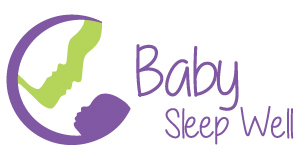Welcome back. I am finishing this final chapter on breast feeding with a diversion to “What could possibly go wrong?”
I have mentioned nipples and breasts but let’s look a bit at mum and baby.
The two things I want to talk about today are the baby who won’t stop crying and some reasons for this, and on the mum front, post natal depression.
These things may not be directly related to breast feeding but certainly have a huge impact on mum’s perceived ability of success or failure of feeding and can sometimes be linked to each other.
The two things I want to talk about today are the baby who won’t stop crying and some reasons for this, and on the mum front, post natal depression.
These things may not be directly related to breast feeding but certainly have a huge impact on mum’s perceived ability of success or failure of feeding and can sometimes be linked to each other.
There are many reasons babies cry; hunger,tiredness, pain and discomfort, illness and teething. As a parent, you are the provider of comfort and a solution to ease the crying. Normally, these conditions can be readily dealt with and are short term problems, It is actually quite normal for a newborn to cry for 3-4 hours each day.
But, there are some babies that seem to cry excessively and are unable to be comforted or settled despite parents best efforts.
This is a cause of great stress and anxiety.
There are some things such as overfeeding, colic and milk intolerance which can explain excessive crying .
Some of these things present in a very similar way so require accurate assessment and diagnosis. Often, symptoms can be improved with medication or changes to feeding.
So, if you have been given assurance that your baby has no medical condition, they are not ill or if they have been given a diagnosis and have a reason for excessive crying, here are a few tips to help you cope and get through each day.
Don’t take it personally, accept it and manage it! It’s that simple but how do you put that into practice?
It is not your fault the baby is crying (don’t take it personally), nor is baby punishing you or trying to make life difficult. You have a crying baby (accept it) and you are not alone or the only one who will survive this. You are probably going to need some help and support (manage it) so make a plan to ensure survival – yours and baby’s.
Get support and help-from family, friends, anyone offering really. You know those people who say “is there anything I can do?”
Answer YES-hang a load of washing, hold the baby for 1/2 an hour, make a meal. Whatever is going to help, ASK. We are not very good at this generally but people feel good to be contributing so give it a go.
If by getting help you can make someone feel good-win,win.
Have a plan in place for when you cannot cope. It is OK to place baby in the cot, walk away and take time to regroup. If you don’t think you can, have an emergency back up and make sure they are aware.
Take some time for yourself. It may only be a few minutes each day but can make you feel recharged.
It is normal for parents to feel overwhelmed and tired. But, it is not normal to feel overwhelmed, sad and disinterested all of the time.
I think it is important to talk about post natal depression (PND) because it can be related to constantly crying babies, lack of sleep and sometimes none of the above.
PND just sneaks up on you and there it is. Three tell tale signs include feeling sad, lack of appetite and loss of libido. Yes, yes, yes, I hear you. “Isn’t that every parent?” Perhaps, but not all of the time.
Partners and family please pay attention! You are the front line in recognising and getting help for PND. It is unlikely that someone suffering PND has the energy or inclination to ask for help or tell you how they are feeling. If you think your partner is acting sad, giving them the opportunity to talk about their feelings is a good start.
Start by letting them know you have noticed they are looking sad and ask if they would like to talk about their feelings either with you or a health care practitioner. Maybe there is nothing to worry about but you won’t know if you don’t ask.
Please have the difficult conversation. Ask these questions:
Are you sad all of the time?
Is there something to look forward to today?
And, the most telling and important, Do you think you could harm yourself or the baby?
The answers will indicate if you need immediate help or a plan to see a health professional. Never leave a mother alone who expresses thoughts of harm.
Without judgement, let them know you are ready to help and support them.
The earlier the better.
Hopefully, these are conversations you won’t need to have but ones I think we need to address and discuss more openly.
At the end of the day, if baby is safe and loved, sometimes that is enough for the day.
Kathy
If you have any questions or there are any topics you would like to see in future posts please don’t hesitate to get in touch.
